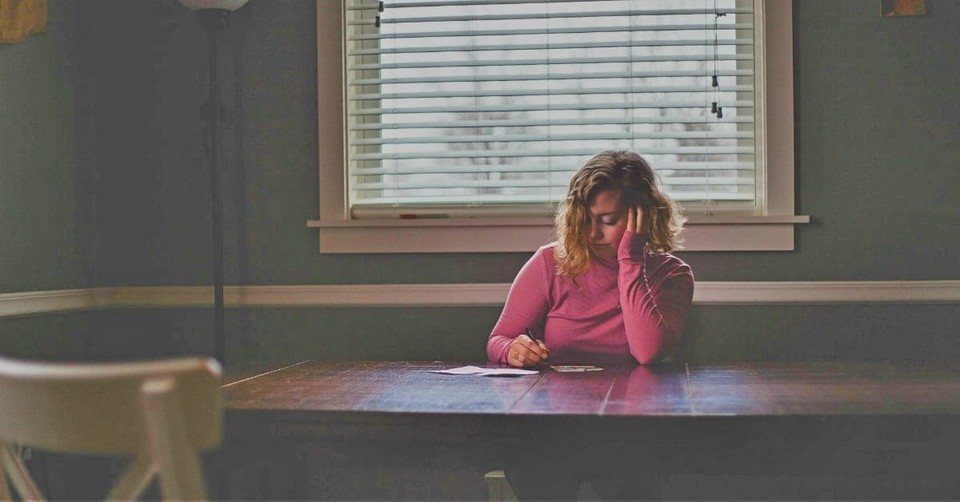4 Things Abuse Victims Need from the Church (and What They Don’t)

The small, gray kitten was brought in, visibly shaken. Mary chose her because she saw something in her eyes. She just wanted to take care of her.
“She’s been mistreated by her former owners,” the shelter worker volunteered.
More than ever she wanted this kitten. Slowly, she reached her hand out to stroke the soft fur. But the kitten shied away. Mary was determined. She would do whatever it took to win the heart of this precious fur baby.
Animals have the ASPCA - American Society for the Prevention of Cruelty to Animals. We need that for people too. Maybe it could be the church.
How can a church be a safe place for those who’ve been abused? First of all they need to feel included.
1. Inclusion
I watched Betty slip in each Sunday, barely making eye contact. I knew that look, it used to be mine. I had to approach her.
I extended my hand. “I don’t think I’ve met you yet; I’m Anne. May I sit with you this morning?”
Her worry lines softened as she nodded yes. All of a sudden the church seemed a little less daunting. And all it took was noticing someone who thought she was invisible.
An abused person isolates because it’s been required. We can’t wait for the person to come to us; we need to make an effort to make them feel welcome. And before that can be done, they need to know they are seen.
When an abused person is overlooked, their feelings of low self-esteem are reinforced. They wonder if maybe it’s true... maybe they’re not worth knowing.
2. Acceptance
It was obvious Ruth felt uncomfortable. Her eyes darted around as she realized maybe she should have dressed the children a little less casual. Oh why did she think she could try this?
I slipped into the pew beside her. “Hi, I’m Anne.”
“I’m Ruth,” she said in almost a whisper.
“I see you have children too. How precious. I think they will really like it here. May I show you where their classes meet?”
People need to know they are accepted just as they are. We need to see others as God sees them; we need to look at their hearts.
“But the Lord said to Samuel, “Do not consider his appearance or his height, for I have rejected him. The Lord does not look at the things people look at. People look at the outward appearance, but the Lord looks at the heart.’” (1 Samuel 16:7)
3. Grace
Once again Jan didn’t show up to be in the nursery. Once again I had to step in. I could feel resentment start building up inside of me. I didn’t want to miss listening to the sermon again. Why did I have to keep covering for her?
The Holy Spirit gently reminded me of when I had missed one of my obligations. And how I was shown grace. And then I remembered the sermon where grace was explained. It wasn’t something we earned; it was something God gave us even though we did not deserve it. I felt convicted. I had not been gracious to her. I made a mental note to give her a call and invite her over for a cup of tea. Yes, that’s what grace would look like.
We have no idea what goes on with abuse victims, some of them are trying hard to just exist. No matter what, we can extend grace. That’s what God did for each of us. Everyone needs grace.
4. A Listening Ear
I watched as my two friends were in conversation. Next to them stood Joy, who was fairly new to our church and who came sporadically.
I walked over and turned to her. “How have you been, Joy?”
She seemed anxious to talk, glad to have a turn. But once she started, she quickly jumped from one subject to another, sharing more than I had anticipated. I tried to be patient and then I saw her slow down a bit.
“Joy, I’d love to hear more about this,” I jumped in. “Do you think we can stop for a bite to eat?”
Relief washed over Joy’s face. She must have thought I was going to cut her off. And maybe, in the past that’s exactly what I would have done. But God reminded me of one girl who always was patient when I was hurting. She always gave a listening ear. Everyone needed a person like my friend, Bonnie.
Those from abusive homes sometimes lack boundaries. Often they start talking and are unaware of nonverbal cues. Maybe they don’t get much opportunity to share. We can give them a listening ear.
“Do to others as you would have them do to you.” (Luke 6:31)
This verse tells us how to treat others. God can show us what the other person needs. Some people need comfort.
“Praise be to the God and Father of our Lord Jesus Christ, the Father of compassion and the God of all comfort, who comforts us in all our troubles, so that we can comfort those in any trouble with the comfort we ourselves receive from God.” (2 Corinthians 1:3-4)
We won’t know someone needs his comfort if we don’t take the time to listen.
If we provide the needed things for abuse victims, they will feel safe. But there are things they do NOT need as well.
What Abuse Victims Do Not Need
1. They do not need pity.
Pity helps no one. Pity makes others feel less than human. Hurting people need to know they are worthwhile adults, not projects.
2. They do not need to be the topic of gossip.
If someone confides in us, we need to honor them by keeping that confidence. It is a privilege when someone trusts us with their heart. We need to handle with care.
3. They do not need our judgement.
Victims of abuse already condemn themselves. No one who stands at an altar to be married, thinking that one day their relationship will fail. Shame lives with those who are abused. The abuse victim feels shame for not doing more, or being more. Some even blame themselves for their abuse.
Appearances can be deceiving.
In the waiting room at Sears automotive, the television shared a story of domestic violence.
“That is so sad,” I said to the woman across from me. I then shared my sister’s story. How I spoke to Peggy one day, and two days later she disappeared. How we never recovered her body. And how we went to court 20 years after the fact, and heard my brother-in-law pronounced “not guilty”.
“I don’t know why she didn't tell us sooner,” I said to the woman.
“I know,” she said quietly. “She was ashamed.”
And this woman admitted she too had been a victim of domestic violence. But she had gotten out.
“I know she was ashamed,” she added, “because I was ashamed.”
We never know the stories of those we meet. If we are going to help victims of abuse, we need to create a place that’s safe. Let’s make the place the church.
Please pray with me:
Father, we pray that you will make our hearts tender to those around us. Help us to be aware of those who are being abused, or those who have been. Give us your wisdom, Lord, and help us to be sensitive. You have given us grace, Lord; let us extend grace to others. God, help us create safety for those who need it. In Jesus’ name, Amen.
Anne Peterson knows firsthand the pain of abuse. You can read more about it in her memoir, Broken: A Story of Abuse and Survival. You can also connect with Anne at:
f: www.facebook.com/annepetersonwrites
t: https://twitter.com/annepeterson
g: plus.google.com/+AnnePeterson/
p: http://www.pinterest.com/annepeterson2/
Photo credit: Pexels.com
Originally published July 13, 2017.







